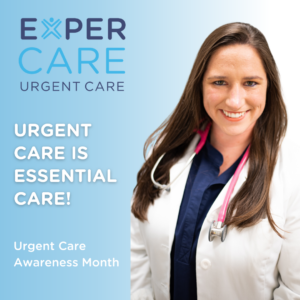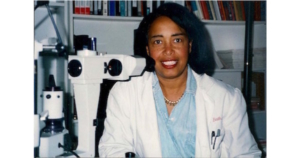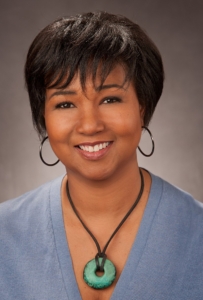 This month, ExperCARE Founder and CEO, Catherine Grant, had the opportunity to speak with Pooler Magazine to share how ExperCARE is transforming the future of healthcare, company growth, and serving the community. Read more below!
This month, ExperCARE Founder and CEO, Catherine Grant, had the opportunity to speak with Pooler Magazine to share how ExperCARE is transforming the future of healthcare, company growth, and serving the community. Read more below!
Story:
Catherine Grant, founder and CEO of ExperCARE, is changing the way healthcare is done in the greater Savannah area. She has a mind for seeing what could be and taking the steps to make it happen.
“I love medicine because I love solving complex problems,” Catherine says. “I love the ability to problem solve, apply what I know, understand people and develop relationships, and then try to leave things better than I found them.”
Beginnings in Medicine
Catherine started college at Armstrong Atlantic State University in 1999 with the plan to attend medical school but when she discovered the physician assistant field, she knew that was what she wanted to do. The career path allowed her to work in a variety of specialties instead of a single focus and provided the work-life balance for a future family.
She attended South University, where she received her Bachelor of Science in Physician Assistant Studies and then onto The Medical University of South Carolina and graduated with honors with a Master of Science in Physician Assistant Studies.
After working as a physician assistant (PA) in a number of specialties including plastic and reconstructive surgery, orthopedic surgery, physical medicine and rehabilitation and moonlighting in urgent care, Catherine knew she wanted to do things differently. She envisioned an customer-focused model and refused to settle for mediocrity.
“Working in the healthcare system is what inspired me to start my own business,” Catherine says. “I’ve never done well in an environment that was just aiming to be a seven.”
The Growth of ExperCARE
In June 2009, Catherine and her partner opened the first location of ExperCARE in Richmond Hill under the original business name The Urgent Care Center of Richmond Hill.
“Our initial tagline was about providing access to high quality health care close to home,” Catherine says. “While a lot has changed with the business in almost 14 years, I have to say that primary mission still stands.”
Their community-focused approach to care with on-demand availability proved to be popular with patients in Richmond Hill. The clinic quickly expanded its services beyond urgent care to include walk-in routine care and occupational health.
With rave reviews coming from the Richmond Hill location, it was only a matter of time before people in Savannah began asking Catherine when there would be a location closer to their home.
In 2016, that idea became a reality with the opening of the Mall Boulevard location of ExperCARE in Savannah. In 2020, they opened a downtown Savannah location and in 2022 added a fourth location in Pooler. Their growth continues with locations in Statesboro, Hinesville and Rincon opening later this year.
“With the growth in Pooler and how many people are flocking to the area, we knew it was going to be important for us to have a presence there because there’s nothing like ExperCARE there,” Catherine says. “I’m pretty grateful for the ability to continue to grow at the pace we have while retaining the things that people love about ExperCARE.”
The ExperCARE Experience
ExperCARE’s mission was born out of a rejection of the cookie-cutter approach to care and an emphasis on creating a patient-first experience enhanced by technology.
“Consumer desires are changing. People don’t want to have to take off from work to go to the doctor,” Catherine says. “They want to be able to go before or after work or on the weekends. They want to live life on their terms.”
Patients never need an appointment to visit ExperCARE, and all four locations are open seven days a week to accommodate busy schedules. ExperCARE is in network with most insurance but also offers affordable, transparent self-pay rates.
“[I think people choose ExperCARE] because we are so focused on how we make people feel. Our aim is for them to leave and say ‘I’d be crazy to go anywhere else,’” Catherine says.
ExperCARE went above and beyond during the COVID-19 pandemic. They were one of the first providers to offer COVID testing in the area, and worked hard to keep a consistent supply of tests and PPE even through supply shortages. Catherine takes pride in her team’s performance and dedication to the community during those uncertain times.
“I’m proud of my team’s ability to adapt and navigate in a dynamic, ever-changing environment and seeing my team step up and continue to do whatever it takes,” Catherine says.
Heart of a Leader
Catherine taught future PAs at South University for several years. Although she no longer teaches (there), she has had the pleasure of having some former students work at ExperCARE as part of their professional journey.
“Seeing smart, eager minds come together and being able to pour into them as they learn and grow is just one of the most enjoyable things I’ve done,” Catherine says. “Seeing them years later practicing medicine and changing lives and thinking you maybe even had the smallest part in that is really cool.”
From nine employees at the start to approximately 70 today, Catherine has built a team that reflects the ExperCARE values both personally and professionally.
“For any position, it’s really looking at our culture and the DNA of our organization. Our organizational values are integrity, compassion, enthusiasm, leadership and teamwork,” Catherine says. “Those values are that unchanging pillar to our overall culture.”
She places a high value on professional development with an onboarding process that includes some required reading of books about leadership, and twice yearly team gatherings build morale among the staff.
“It’s all about really getting to know the people you work with and understanding what their goals are and how we can help them get there,” Catherine says. “Sometimes that’s going to be in our organization. Sometimes we’re a stepping stone to a future goal. I think the more you can embrace that and really serve them, they will continue to serve our patients, their families and the community.”
Serving the Community
Catherine makes a difference in her community through her involvement in organizations like United Way of the Coastal Empire, where she is a member of the Board of Directors and has been recognized as part of the organization’s Women Who Rule campaign. She is also a board member of the Richmond Hill Downtown Development Authority, forging public-private partnerships to enhance the area’s economy.
Because of the drive and passion that she puts behind the causes she cares about, Catherine is a prolific fundraiser. In 2017, she chaired the Bryan County United Way annual campaign and shattered their fundraising record. She has also raised more than $63,000 for Alzheimer’s research as a participant in the Alzheimer’s Association Dancing Stars of Coastal Georgia in 2015.
She has continued to be involved with Dancing Stars of Coastal Georgia as a committee member, partner and as a pro dancer.
Outside of work, Catherine enjoys spending time with her husband and three daughters. She and her family attend Compassion Christian Church, and her faith drives her decision making process in choosing causes to be involved with and her philosophy in patient care.
Looking to the Future
As ExperCARE continues to grow, so too does Catherine’s motivation to make an impact on the healthcare industry as an entrepreneur.
“I get motivated when I see how broken the healthcare system is,” Catherine says. “There’s so much room for improvement. It just takes people who know the system to think outside the box and be willing to innovate and make it better.”
View Pooler Magazine HERE!




 Summer is here and it’s time to enjoy the great outdoors! But before you head out, it’s important to take precautions and protect yourself from the harmful effects of UV rays. Here are some ExperTIPS to keep in mind:
Summer is here and it’s time to enjoy the great outdoors! But before you head out, it’s important to take precautions and protect yourself from the harmful effects of UV rays. Here are some ExperTIPS to keep in mind: Did you know that May is Urgent Care Awareness Month? This month, we recognize the importance of urgent care centers in providing timely and convenient medical care to patients.
Did you know that May is Urgent Care Awareness Month? This month, we recognize the importance of urgent care centers in providing timely and convenient medical care to patients. This month,
This month, 



